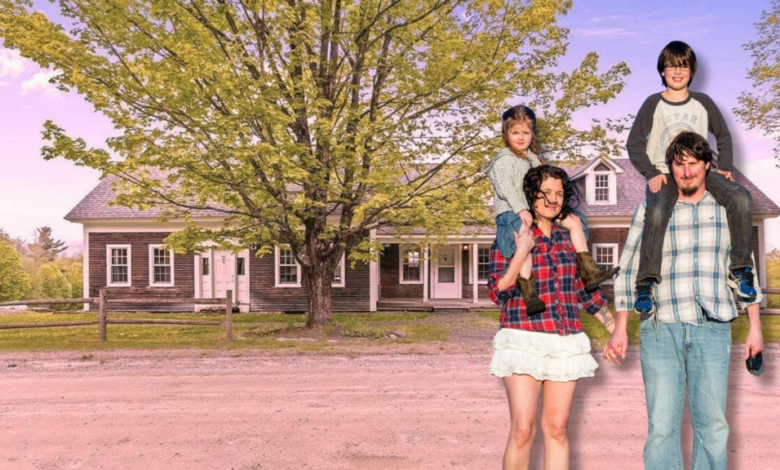We Found Our Dream Home and Didn’t Take the Lowest Mortgage Rate. Here’s Why

Our family has dreamed of moving to the Vermont countryside for at least a decade. When we discovered a renovated farmhouse with a pond surrounded by the Green Mountains, we were sold. Except for one problem: mortgage rates.
We were ready to move and could afford the down payment, but the high interest rate on our mortgage was going to make our monthly payments difficult. However, if we held out and waited for mortgage rates to drop, we would miss out on our dream home. So we rolled up our sleeves and went hunting for a bargain basement mortgage rate.
We did have some negotiating tools: a lot of equity, a steady source of income, and exceptional credit scores. Ultimately, we learned a lot about what it takes to buy a home in a tough housing market and why the lowest mortgage rate isn’t always the best option.
We were offered a mortgage rate of 6.25%
Before we started looking at homes in Vermont, our family drew up our financial boundaries and revised our budget. The ultra-low fixed rate we scored years ago when refinancing our Utah home was no longer an option. In today’s housing market, interest rates are nearly double what we’re paying now.
We started collecting quotes from lenders and looking into prequalification, starting with our own credit union and another bank we used for auto loans. Our realtor also recommended finding local mortgage brokers who could untangle the bureaucracy of financing a home in Vermont.
We were offered mortgage rates ranging from 6.25% to 7.5% between four different lenders. While a 1% difference While an interest rate may seem small, it can make a big dent in your monthly mortgage payments.
Our Utah-based credit union and bank, both licensed to lend in Vermont, offered the lowest rates, yet the fine print showed wildly different numbers for closing costs, fees and taxes.
That’s when we started to realize that 6.25% mortgage rate wasn’t exactly the best deal, and why choosing the right mortgage lender is important. Working with a lender you know doesn’t always give you an edge, especially in a complex market.
For example, a local lender knows the market and can put you in touch with others during the home buying process, Nick Oudermortgage broker and owner of Vermont Mortgage Company. “Local lenders often have better connections with local attorneys, inspectors and appraisers, which should speed up the process and get you to closing on time,” Parent said.
Why we opted for a higher mortgage rate
After getting a few quotes, we went back to the mortgage broker in Vermont and tried to negotiate a lower rate. We didn’t get a drastic rate reduction, but the financing package we walked away with saved us from unexpected taxes and fees that would have been rolled into our monthly payments.
“Oftentimes a rate that seems too good to be true can end up costing you more in fees and may not be the best option overall,” Parent said.
In our case, quotes from out-of-state lenders dramatically underestimated closing costs and other fees. Getting a comprehensive loan estimate from a local lender gave us a more accurate picture of the true cost of buying a home. Here’s what we learned in the process.
💡 Credit scores are less important than you think
What really helped us get a better rate wasn’t a great credit score. It was our candor about finances, including profit and loss statements, bank balances, and the value of other assets.
💡 You have more influence with more quotes
You can usually get a basic quote from lenders or mortgage brokers without a hard credit check, so get a handful to compare and contrast. Then go back to the lender you’d most like to work with and ask if they’d be willing to negotiate.
💡 Read the fine print
Lenders unfamiliar with the local terrain significantly underestimated the taxes, fees and other costs associated with financing a home in Vermont, adding up to thousands of dollars in discrepancies that would have resulted in higher monthly payments.
Other Ways to Get a Lower Mortgage Rate
There are many more strategies to get lower interest rates:
- Make a bigger one deposit. You can get a lower interest rate because you are less of a financial risk to the lender. A larger down payment also means you pay less in principal and interest each month.
- Get a shorter loan term. Shorter-term mortgages have lower interest rates, but keep in mind that your monthly payments will be higher.
- Go with a variable rate mortgage. Introductory rates on variable rate mortgages are lower, but may rise or fall depending on future market conditions.
Mortgage rates aren’t everything
Although our initial goal was to get the lowest possible rate, we didn’t commit to the lender who offered us a fixed rate of 6.25%. Instead, we went with the agent who offered us a slightly higher rate but who knew the local market. Our lender in Vermont understood how to save us money up front on closing costs and communicated with our agent throughout the process.
No stone has been left unturned. That is worth a lot when you buy a house.




